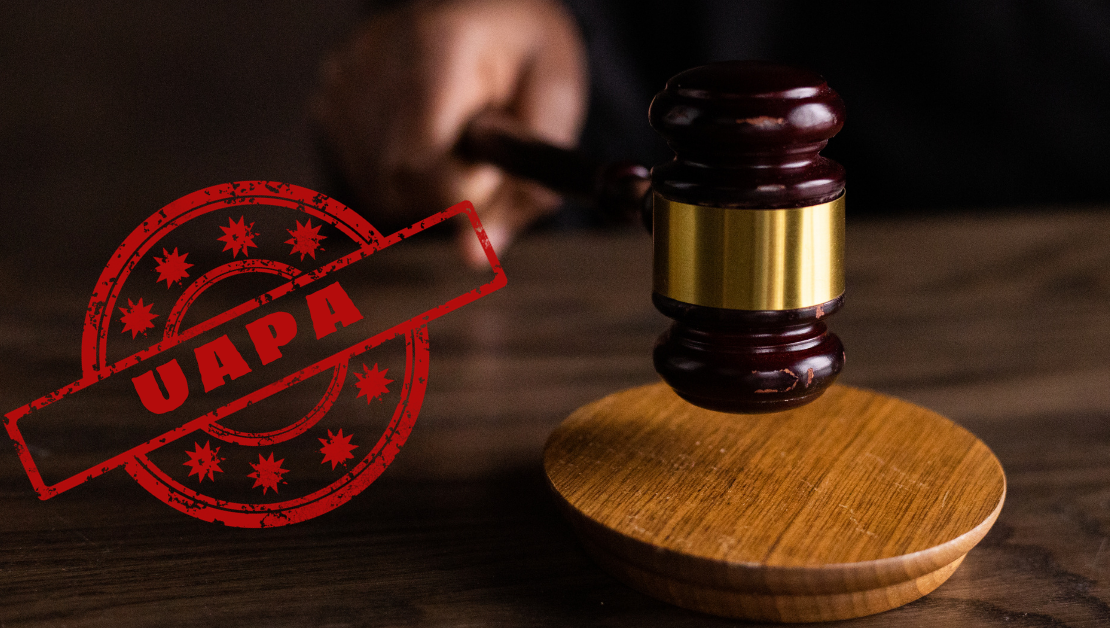Activists Natasha Narwal, Devangana Kalita, and Asif Iqbal Tanha were met with cheers and happiness as they exited the Tihar jail yesterday. After a year since their arrest, the students’ counsels’ hard work paid off, and were granted bail in their case under the Unlawful Activities Prevention Act (UAPA). The three were booked by the Delhi Police as conspirators of the deadly Delhi riots in early 2020.
This release is significant because those accused under the UAPA find it near – impossible to get bail in cases under the act. The much-criticized act does not have clear specifications under its criteria to arrest someone. It gives the State the power to arrest anyone they think plausible, and instantly linking them with terrorist acts. Even possessing ‘suspicious’ literature, or expressing support to similar organizations amounts to a case to put one behind bars. Simply put, one can be designated a terrorist by the government if it thinks so.
The Delhi HC however has thrown light on how the UAPA cannot be used to “blur lines” between dissent and terrorism, and that doing so will be a threat to democracy. The bench clearly said that it did not find any “specific or particularized allegation” that would deem them worthy of inciting terror. Despite this landmark ruling, Narwal, Kalita, and Tanha were kept in jail for two days. The prosecution said that they were unable to complete the verification of addresses when the defending counsels sought immediate release. Meanwhile, the Delhi Police has already moved the Supreme Court to put a stay on the bail.
The UAPA has been the most sought after act to book people, especially those who are voice criticism against the state. Notable are those arrested in the Bhima Koregaon case. Poet–activist Varavara Rao, a key accused in the case had only received bail after a perilous time in jail with his rapidly deteriorating health. Stan Swamy, who simply requested a sipper after his Parkinson’s diagnosis, was delayed by a month by jail authorities.
The UAPA, because of its vague criteria, makes way for the state to keep the accused in custody for a long time. Even if the accused finds evidence to quash the case, it will have to be presented in court, its validity examined and countered by the prosecution. Given the pace of trials in India, people still in jail like Umar Khalid, and Sharjeel Imam have an uncertain future ahead under the draconian law.




Warning: Use of undefined constant ‘url’ - assumed '‘url’' (this will throw an Error in a future version of PHP) in /var/www/html/wp-content/themes/theissue/functions.php on line 143
Warning: Use of undefined constant ‘url’ - assumed '‘url’' (this will throw an Error in a future version of PHP) in /var/www/html/wp-content/themes/theissue/functions.php on line 143